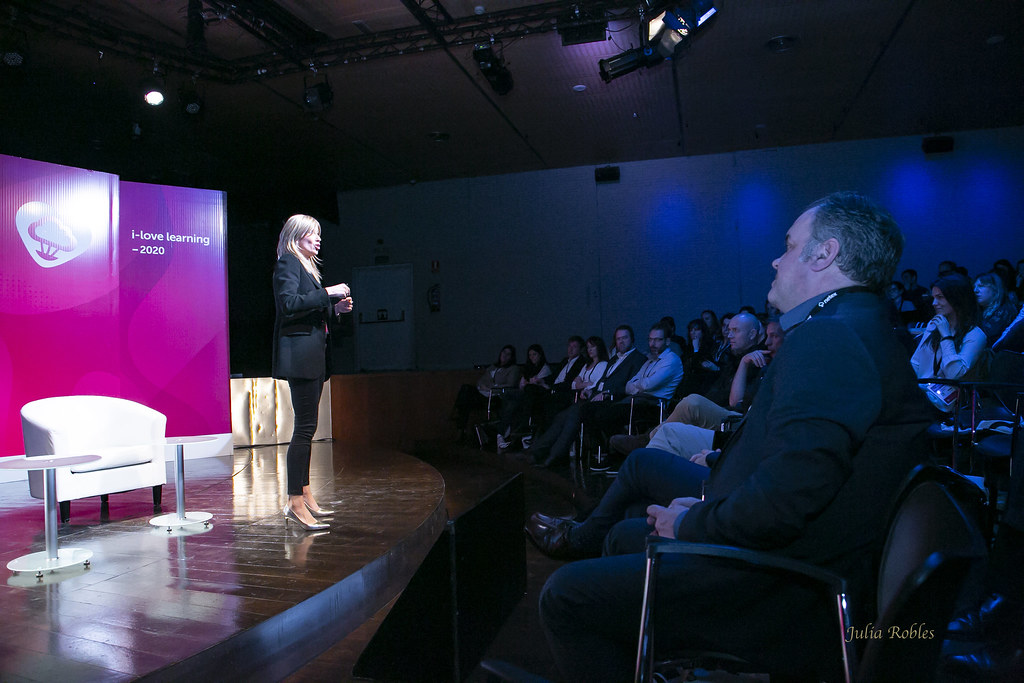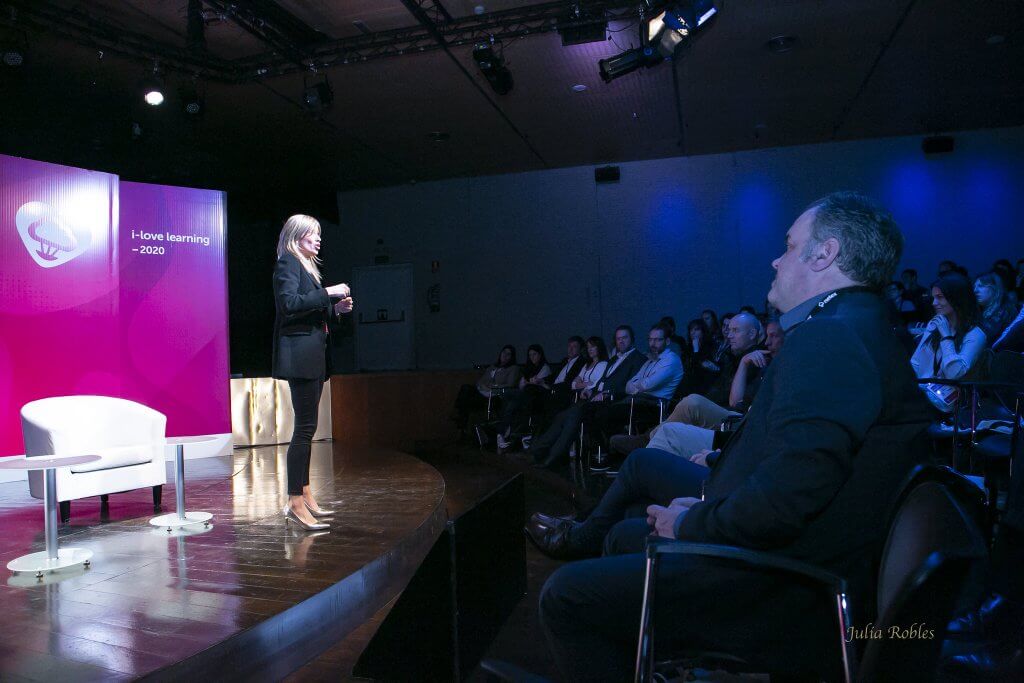Share
Technology is changing our world. Above all, our way of seeing the world. Whether we think we are in the fourth revolution, an era of change or a change of era, the truth is that life is changing us very much and constantly.
The greatest challenge we face in the context of technological transformation is how we deal with it: whether we understand it as an inevitable evil that will pass over us, or whether we understand it as a tool created, adapted and adopted by us, which will allow us to be better humans. And that affects how we are formed as individuals and, of course, as organisations.

Margarita Álvarez P de Zabalza, in i love learnig 2020
Our leisure time, the way we listen to music, watch movies, consume, play sports… is changing. And the business world is changing too.
And change is good. We always get better in the long run. But now, in these moments of deep transformation and at a speed never seen before, it is important that we stop and see what has changed and what has not. What should change and what should not. What belongs to our essence and what cannot be replaced.
What is clear is that technology is changing our world, and how we understand and adopt it is going to make a big difference.
Today it is technology, it is algorithms that govern many of the decisions we make every day. But even though they’re faster than we are, they still have major shortcomings. In fact, they ignore considerations that our brain makes immediately in tenths of a second with our limbic system.
And yet the algorithms are going to be and are already part of our lives. They shape our day-to-day lives.Technology allows us to do things we could never have dreamed of. We can do business thousands of miles away; it allows us to buy a house without leaving ours and making a virtual visit; our phone recommends the best route to a particular point with live traffic information; or allows us, through platforms like Netex learningCloud, to learn about topics and people that were not even imaginable before.

Designed to engage and empower learners with a high-impact learning experience.
And amidst all these changes, organisations are trying to adapt to the digital transformation. But by making two serious mistakes:
- The first is that we approach technological transformation thinking that this is about including technology in what we do today. And by doing this, we miss the opportunity to carry out a strategic transformation, in which we analyse what we want to be and where we want to be in three, four or five years. And then yes, apply the technology that will allow us to reach that specific point. And that strategic transformation has to start from the top of the company. But it is very important that it reaches each of our employees.
- The second is that, when we talk about technological transformation, we do not understand that it is not just about technology. When we talk about digital and/or technological transformation we have to think about technology, but above all about the future, about strategy, about what we want to be when we grow up… and above all about people.
Technological transformation is about people
The people who are part of our company understand and want to grow and make the company grow. If we do not take advantage of the knowledge that the people who make up our company have to grow, we will be applying technology to processes, without further ado. And we will have lost a great opportunity.
The greatest knowledge is inside, not outside. And that is why there are two important aspects to working in a company: innovation, which people apply every day, and intrapreneurship.
And for both, people require training and information.
Technological transformation is about people designing and adopting technology in companies. People who know that there are things that cannot be replaced, such as curiosity for learning, the ability to thrill, or creativity to create the future every day.
People who understand that we are knowledge nomads, knowmads. That we are worth more the more we know. And the more we understand about everything around us.

Photo by Christina @ wocintechchat.com on Unsplash
The world will become polarised between experts in certain subjects and illiterates in certain subjects because changes are here and will continue to come at a greater speed.
And that is why in organisations, faced with the fear and uncertainty that any change generates, we have to work on three fundamental elements:
- Learning, constant and practical training that allows the people who make our company to grow and make the project grow.
- Transparency, the ability to communicate, communicate and communicate (which includes listening) to overcome fear and to achieve a commitment to our project by all the people who create it every day.
- And trust, a key ingredient for innovation and intrapreneurship to take place.
People want to grow. This is one of the most important motivations when choosing a job or feeling happy with it. And organisations have to be there to support that growth.
This is true for millennials, but also for the rest of the older generations. The greatest added value we can provide today is learning and knowledge growth.
How we understand and adopt technology in our era is what will determine when we will become extinct.
Technology should help us to become better professionals but above all better humans.
Header photo by Uriel Soberanes in Unsplash.
Share

